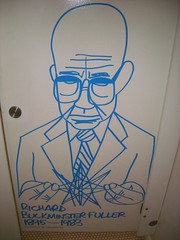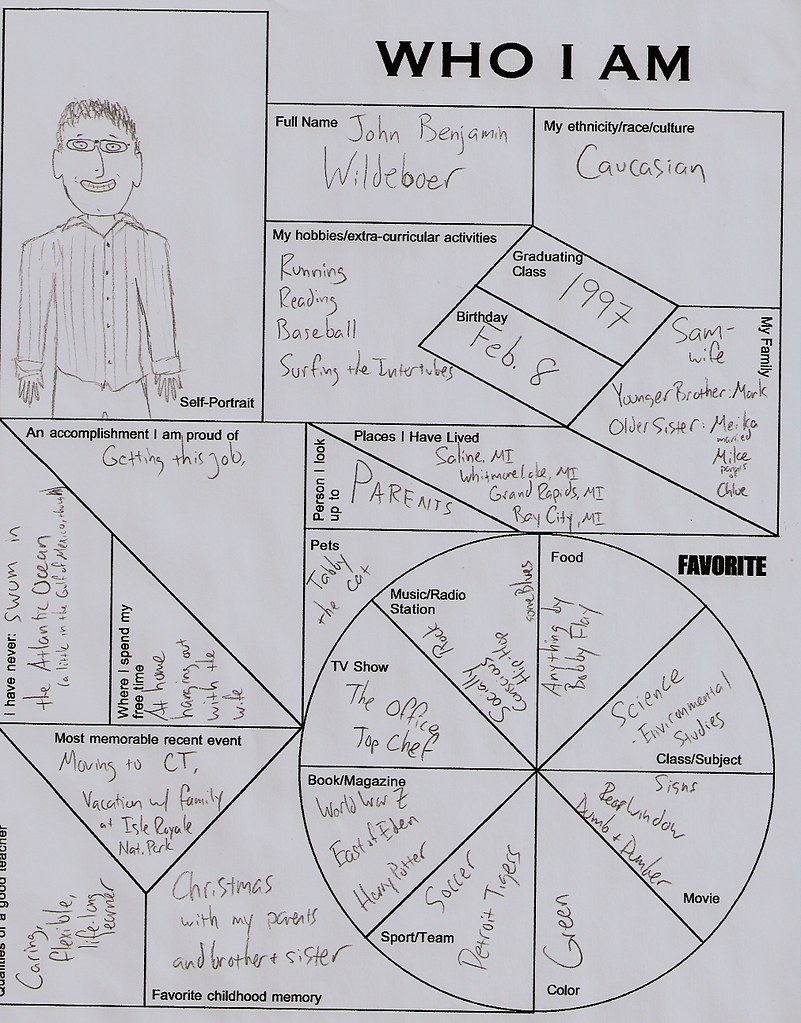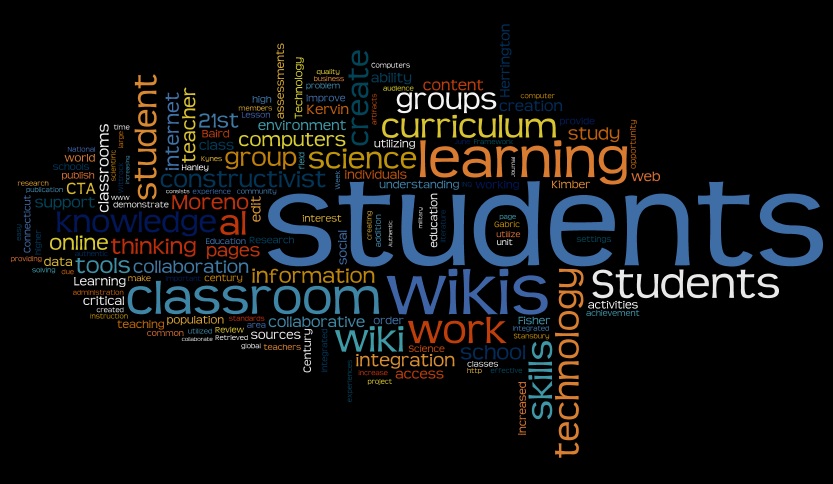You know...the one you give students whether they're right or wrong because you want them to think with their own brains, not with yours. As inspired by Dan Meyer, who has inspired a whole meme of clueless pics.
Who I Am
My post on plans for my first day with students included Dan Meyer's "Who I Am" sheet. I just thought I'd share my completed sheet, in case you were interested. 🙂
DONE! (Well...kinda)
I have just finished writing my Master's project proposal. It's been an experience. Since I've known I'll be moving out of state (circa November), I've been trying to finish all the classes I can to avoid the horrors of transferring graduate-level credits. Since January I've taken 10 credits, including my weenie 1 credit I get for the completion of my project proposal. Needless to say, I haven't had to worry about how to spend all my free time the last few months.
Below is a word cloud for my Master's project via Wordle. Care to guess the topic?
Thanks to Terry and Kevin for bringing Wordle to my attention via Twitter.
When the hugeness hits me
I'm a pretty laid back dude. I don't get too worked up about major life changes. It's not that I don't appreciate the hugeness of the changes, it's just that I'm okay with change, and look forward to the new opportunities that result. I'm currently in the middle of some pretty huge life changes (i.e. moving from Michigan to Connecticut). However, I haven't had much time to reflect on their hugeness due to my crazy grad classes and end of the year school craziness among other things.
Today I received my first batch of exam projects from my 1st hour, and set right to grading them during my 2nd hour prep period. The first exam I opened looked like this:

Needless to say, this looked like a pretty good exam. I was excited to go through it. Then I got to the first page (as seen below):

The hugeness of the changes going on in my life became a little more real to me after reading that.
I'm going to miss this place. 🙁
Signs of success
A snippet from a conversation I had with a student this morning:
Student: "This project is long."
Me: "That's why I gave you so many days in class to work on it. I wanted you to have time to make it excellent."
Student: "Yeah, but this project is taking longer than when we just used PowerPoint. Then we'd just put the information on the slide. Now we have to put it in to something. It's a lot harder."
If you haven't been following along, students are creating artifacts of their knowledge as their final exam (see previous posts). the student chose to create a textbook that covers all the information we've covered throughout the trimester. I banned students from using PowerPoint since they were mainly just filling the slides up with text and totally missing the point of presentation software (they're not presenting, they're weren't creating graphic-based slides, etc.). That decision seems to have been a good one. I've seen many projects-in-progress that I'm sincerely excited to get a chance to look over, which hasn't always been the case in the past.
Thoughts from Buckminster Fuller
 “If you are in a shipwreck and all the boats are gone, a piano top . . . that comes along makes a fortuitous life preserver, but this is not to say that the best way to design a life preserver is in the form of a piano top. I think that we are clinging to a great many piano tops in accepting yesterday’s fortuitous contrivings.” - R. Buckminster Fuller
“If you are in a shipwreck and all the boats are gone, a piano top . . . that comes along makes a fortuitous life preserver, but this is not to say that the best way to design a life preserver is in the form of a piano top. I think that we are clinging to a great many piano tops in accepting yesterday’s fortuitous contrivings.” - R. Buckminster Fuller
Reluctance to change has been in my (limited) experience one of the biggest hurdles to improving teaching and learning. It's not that people can't change. It's that they hold on to past practices while throwing in little bits of the new stuff. The result is that the new bits aren't utilized to their full transformative potential. Instead, the new bits are forced into the old mold, whether or not it makes sense for them to be there.
Several examples sprung to my mind as I read Bucky's quote.
- Using laptops solely for word processing
- Using presentation software (read: PowerPoint & Keynote) for overly text-y purposes
- Using a blog or wiki just as another way to complete homework
While my thoughts tended to be focused on the implementation of technology into classrooms, the same ideas certainly could apply to non-tech related school issues. How often do we (as educators) turn to sound research when making curricular or structural decisions? Is it unrealistic for teachers to keep an eye on the literature?
Quote via The New Yorker via Treehugger Image by sbisson via FlickrI shouldn't be so excited...
From our principal's Monday Memo:
"Wednesday – Begin casual days the remainder of the year."

It's the small things that make life significant.



